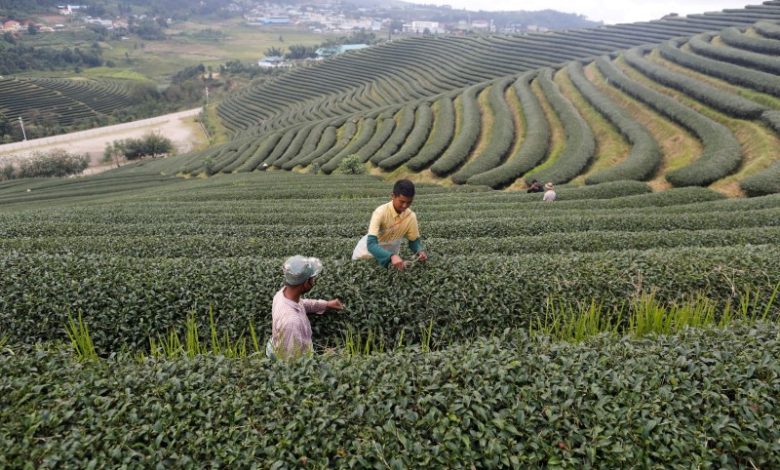
Sri Lanka’s Tea Producers Warn 70% Wage Hike Will Impact Industry – Reuters
By Uditha Jayasinghe
COLOMBO (Reuters) – Sri Lanka’s tea producers expressed strong disapproval on Monday regarding a government directive to raise wages by 70%, warning that it could undermine their tea’s competitiveness on the global market and decrease crucial dollar earnings needed for the country to recover from an ongoing financial crisis.
The tea industry, valued at $1.3 billion, is known for its Ceylon Tea and employs approximately 615,000 workers, with about 95% of the 250 million kilos produced each year being exported.
The government has mandated that worker salaries increase to 1,700 rupees (approximately $5.66) per day from the previous 1,000 rupees. Industry representatives assert that this wage hike will result in a 45% rise in tea production costs.
The persistent financial crisis in Sri Lanka, triggered by a significant foreign exchange shortage in 2022, has heavily impacted the tea sector, leading to skyrocketing costs for fertilizers, fuel, and electricity, according to the Planters’ Association of Ceylon (PAoC).
"This is unsustainable and unfair," stated PAoC spokesperson Roshan Rajadurai. "This decision was made without proper consultation and will lead to a decline in the quality of Sri Lanka’s tea. Our key competitors, India and Kenya, maintain lower prices and higher productivity."
The Labor Ministry announced that the industry must implement the wage increase starting next month, cautioning that companies failing to comply may face government takeover.
According to the association, conforming to the new wage structure will impose an additional financial burden of 35 billion rupees on plantation companies.
Plantation firms and labor unions have been in discussions for months about salary increases, which unions argue are necessary as Sri Lanka’s financial crisis has pushed approximately a quarter of the population into poverty in 2023.
 GOOGL
GOOGL  META
META 


